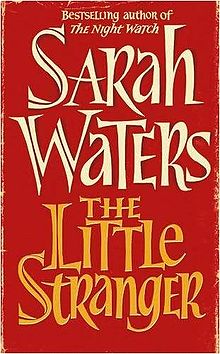Beginning in 1947, this novel traces the lives of four interconnected Londoners back through time into the Blitz. I’m a complete tragic for anything set in this time and place, so it’s no surprise that I ripped through it quite happily. As an example of Waters’s work, it’s relatively typical, though certainly not her best (probably The Little Stranger or Fingersmith, though I can’t claim to have read them all). The reverse chronological is the perfect mechanism for this particular plot, and it makes me wonder which she decided on first, format or content; I like to imagine her coming up with the story and then, in a flash of 2am inspiration, realising how much more effective it could be if the flux, so to speak, were reversed.
Continue reading The Night Watch
Waters delivers more of what she’s good at: history and lesbians. This one is a page-turner while it lasts, but I have to say that it left me a bit less satisfied than previous efforts. Possibly, this might have something to do with the fact that it’s pretty much a straight (unintended pun) narrative journey from A to C via B; it doesn’t have the twists, turns and mysteries of some of her other novels. Continue reading The Paying Guests
I wanted to reward myself, after several weeks of battling the narrative tributaries of Zia Haider Rahman, with a proper story, properly told. Boy, do I need to be careful what I wish for.
I was reading an online discussion recently about Sarah Waters, in which it was observed that her novels’ resistance of conventional genre boundaries made it impossible to predict how they would end. I had this in mind while navigating the Little Stranger, and I think it’s a pertinent comment. The novel has elements of pure joyful gothicism*, complete with a possible ghost; however, it also encompasses the psychological thriller, as well as the more mundane arena of mid-century drawing-room romance, all with the occasionally-glimpsed feminist undercurrent which has to be expected from Waters. Continue reading The Little Stranger
In 19th century England, a rogue enlists the help of a petty thief (the fingersmith of the title) to seduce a young woman of means. It’s hard to say much more without spoilers, because the plot twists itself into something completely new several times before getting to its conclusion. Story is definitely king here (or rather, I suppose, queen). Not that the prose isn’t pretty good: tight but lyrical, with descriptive passages that avoid slowing down the momentum. But the writing is there as a vehicle for the plot, not the other way around. The result is a suspenseful and engaging page-turner which I personally enjoyed immensely. Probably the greatest compliment I can pay it is that when I read it at the gym, I was taken completely by surprise at the machine timing out.



